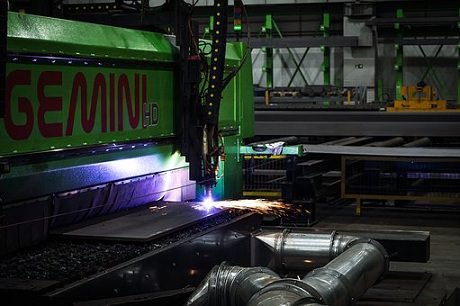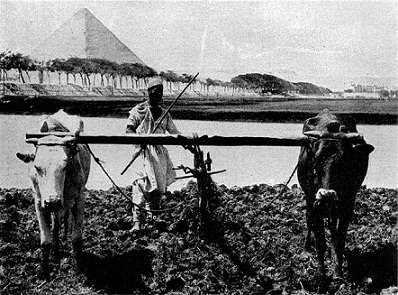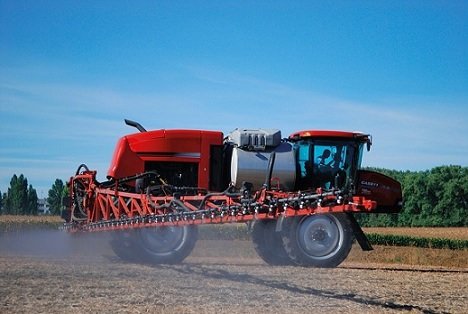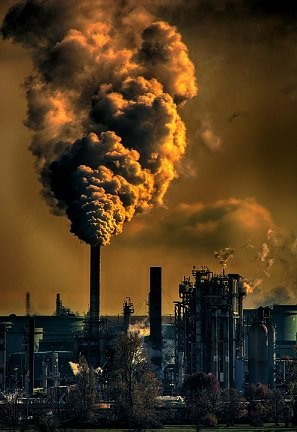Industrial Automation And Its Effects [The Good, The bad, And the Insane]
Introduction
This era has been witnessing amazing technological advances, particularly in the field of AI and automation; but to these advancements; are there attendant consequences? Well, just for you to be aware, we are currently witnessing another industrial revolution; which has been said to be the 4th. In this survey, we will be looking at how this has affected our humanity.

[Image Source: Pixabay. CC0 licensed]
Overtly, has technology brought assistance to humankind? Okay; for the major part of it, this is actually a "yes" - I mean, the work processes can now be automated and would require less physical exertion from humans. Also, there have been instances where tasks that were thought to be humanly impossible have been achieved by technological inputs. Brilliant; you may say, but what if I tell you that there are also some dark sides to this? Well, just hang on. We will be viewing both the bright side of technology and the dark side concurrently.
Job Creation/Loss
No doubt, we are in the era of digital transformation, and this has been felt in the labour market. Before I continue, let me take us back to history. Before the industrial revolution that happened in the 18th century (which was actually the first), majority of the works available were heavily dependent on manual physical human labour, and not just that; because of the obvious limitations in human's physical strength, the efficiency and speed at which jobs were executed didn't match up to the required result.
Take the case of Agriculture for example; before the era of industrialization, cultivation would require humans to use hoe to dig up ridges; after which; seeds would be planted by hand, and also during harvesting period, the fruits would be hand-picked too. This was too tiring if you would agree with me. But when farm machines were introduced; which started off from Cattle-driven implements; the workload on human-labour reduced.

[Image Source: Wikimedia Commons. Author: Keystone. Public Domain licensed]
The first industrial revolution; which started in Britain; cut across both the manufacturing sector and the agricultural sector [ref], but I would focus more on the agric sector. Because of the introduction of farm machines (though very simple and crude then), there was an increase in crop yield - yes; more farmland would be cultivated in lesser time. And this, in turn, impacted positively on the economy; as the GDP was seen to increase. This continued, and also gave way to the second industrial revolution.
The second industrial revolution (2IR) saw to more advancements in technology - no wonder it was dubbed "Technological Revolution". During this period; the crude farm implements were replaced by more complex ones, and even the production of Internal Combustion engines was dated back to the 2IR [ref], and that could explain why tractors were introduced in the Agricultural sector. No doubt, the effects of this were further increase in crop production and more efficiency in the agric sector. But for the downtime; just as you may guess; many human jobs were overridden by machines. Which means; jobs were lost to automation.
But as it were, the job losses were compensated by the creation of some other types of jobs. Still in our case study; the Agricultural sector; the machines and the tractors that were used would run on petroleum product right? That would create jobs for people in the petroleum industries. Also, it would require maintenance and servicing, this also created jobs for mechanics. So you see, the loss of a particular type of job led to the creation of other types of jobs.
Moving quickly up to this era; we have seen Agro-robotics taking over the agricultural sector. Prior to this; the agro machineries in the other revolutions were controlled by human operators. But this era has witnessed rise of Artificial Intelligence and automation. And this has been incorporated into the Agric sector too. Some of these Agro-robots are devoid of human assistance (fully run by AI) while some are controlled from a remote server. Not just that, even Agro-drones are now employed in farming.

[Image Source: Pixabay. CC0 licensed]
Some weeks ago, we saw the Drone Pollinator - A drone modelled after the biological bee; whose job is to pollinate farmlands in lieu of the natural pollination done majorly by bees. You won't be wrong to infer that this era has not only decimated human inputs in some aspects, but also animal inputs (like in the case of the drone pollinator). No wonder, this has created the fears of AI stealing our jobs in future, and this has looked rather disturbing. According to this estimation, about 800million human jobs would be lost to automation by the year 2030. This could also be in partial fulfilment of the prediction made by the late Professor Stephen Hawking in the World Economic Forum:
AI and automation will decimate middle class jobs. - S. Hawking [source]
Are you scared? maybe not. He was rather particular about the type of jobs that would suffer the most decimation. But the good news here is; not all jobs are replaceable yet by automation, and these are the jobs requiring human decision, logic, reasoning, and intelligent skills (maybe the scares would arrive when Artificial Intelligence advances to Artificial Super Intelligence, then all these areas could have the propensity of being replaced by machines). Advances have also been made in this, as the AI that can program other AIs has been created.
Away from the area of job creation and replacement, let us look at another aspect that has witnessed the impact of technological advancement, and that is our "environment" and the world around us.
Industrialization and Environment
Does industrialization come with its own pecks on the environment? Okay, let's find out. Do you remember the example I gave about the creation of jobs in the petroleum industries (oil refineries)?. If you've ever been around the refineries, you would agree with me that one of the major challenges people face there is air pollution. Thick smokes from the refining plants are usually released into the atmosphere; not to talk about the event of an oil spill that may result in land and water pollution. A publication has stated that Beijing is one of the most air-polluted cities in the world, and this is as a result of the heavy industrialization in that city of China - As a matter of precision, this is one of the most industrialized cities in the world (according to the same publication I referenced earlier). So by inference, Industrialization = Increased air pollution.

[Image Source: Pixabay. CC0 licensed]
This does not also take into account the emission of Greenhouse gases (as industrial by-products), which has the potentials of increasing the average temperature of the earth overtime; and I'm sure you know what the implications of this would be: The polar region and the ice caps would begin to melt, and when this happens, the coastal cities could become submerged. And the truth is; this has already begun. If you have been abreast with news, you would have heard of the massive flooding that happened in late 2017 in Mumbai (South Asia), killing somewhat of 1,200 people and displacing over 1million people [ref]. Imagine what would happen when these green house gases rise further and the polar caps melt further, we could be witnessing catastrophic flooding soon. But even with all these attendant downtimes; technology has been seen to assist humankind in diverse ways - from our homes, to our offices etc. I'm wondering; without technology, how would you have been able to read this post? lol. This era has witnessed massive industrialization; all thanks to emerging technology. But this has not left the entirety of the fate of humankind without some negative impacts. Well, I guess these are the prices we have to pay for industrialization. I ask this sincere question: "Would you prefer the era where there is no technology (maybe the neanderthalic era) or the era with technology but with some negative effects? You see, you would gladly pick the era of tech, irrespective of the potential threats. Thanks for reading References for further reading: All Images are CC0/Public Domain Licensed and are linked to their sources gif by @foundation


What ever the situation is I still prefer the new era because things would get better if we neglect the downsides and adapts
what we humans do (adapt and survive)Apart from you @samminator that is a botThat's the spirit bro. The downsides are nothing compared to the potential benefits.
Or maybe part human part bot :D
I am not afraid of AI, I am afraid of the intentions of those developing the AI. Population growth and the move away from agrarian societies have made countless persons left unemployed and penniless, and it's not like for-profit companies are required to have any interest in helping them in the current economic model.
And it is still too early in the experiment to see whether most people will really enjoy the post-industrial age, even today the economic divide is vast and the ramifications have yet to fully present themselves. We are, after all, only a few hundred years into the real swing of the fossil fuel era, whereas modern humans and our predecessors got by without it for countless generations.
Maybe we're almost gone pass the fossil fuel era into another era the presents with obvious threats too.
No doubt, technology will always present with threats, but it is left for us to turn the "enemy" into our ally
As good intentioned as industrial revolution may be of, it usurps man of his job and harm our environment. Very bad and unfortunately, we can't do without it. Damn.
@sciencetech
Sure, you're right bro. I guess technology would stick around for a very long time
Apart from the fact that automation leads to loss of employment, it is the way forward.
if not for technology, this world would have been worse sincerely, would you rather i sent this comment as a letter that would take weeks to deliver? lol
Hahahaha. And the comment could get lost in transit :D
Technology has indeed been helpful to humankind
Everything has two sides. AI has brought great change to our lives
I quite agree with you on that
This post has been voted on by the steemstem curation team and voting trail.
There is more to SteemSTEM than just writing posts, check here for some more tips on being a community member. You can also join our discord here to get to know the rest of the community!
Hi @samminator!
Your post was upvoted by utopian.io in cooperation with steemstem - supporting knowledge, innovation and technological advancement on the Steem Blockchain.
Contribute to Open Source with utopian.io
Learn how to contribute on our website and join the new open source economy.
Want to chat? Join the Utopian Community on Discord https://discord.gg/h52nFrV